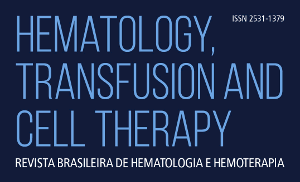ABSTRACT
Background
Carica papaya Linn. has high nutraceutical and pharmacological values. The leaves possess antimicrobial, anti-tumor and antioxidant properties. They are used to treat thrombocytopenia during dengue fever and the leaf extract is commercially available as tablets under the name Caripill™ (MicroLabs, Bengaluru). Nevertheless, platelet transfusion is recommended in severe cases of thrombocytopenia, but the platelet storage is limited to 5-7 days at 22−24 °C. Reducing oxidative stress (OS) during platelet storage might help in prolonging the shelf-life, since the OS is known to cause platelet storage lesion. Hence, this study investigated the effects of Caripill™ as an additive in Tyrode's buffer during extended platelet storage.
Methods
Platelets isolated from 4 months old male Wistar rats were stored with Caripill™ (50 and 100 µg/ml) at 22 °C for 12 days. Platelet functional and metabolic markers and various OS markers were analyzed on days 0, 4, 8 and 12.
Results
Caripill™ (50 and 100 µg/ml) maintained platelet functions and lactate dehydrogenase, elevated nitrites, reduced glucose consumption, protected proteins and up-regulated the antioxidant enzymes. However, the CP100 up-regulated catalase from day 4, elevated nitrites from day 8, prevented the formation of secondary products of lipid peroxidation and increased the total antioxidant capacity on day 4.
Conclusions
Caripill™ reduced platelet storage lesion up to day 8 of storage. Results suggest that a higher concentration of Caripill™ was more effective in combating the oxidative damage during platelet storage. This study throws light on the beneficial effects of Caripill™ in combating oxidative stress during platelet storage.
Keywords
Caripill™; Carica papaya; Platelets; Storage; Oxidative stress

 Thumbnail
Thumbnail
 Thumbnail
Thumbnail
 Thumbnail
Thumbnail
 CP50: Caripill™ 50 µg/ml; CP100: Caripill™ 100 µg/ml.Changes between the groups (storage days) were significant in ATP secretion. (p < 0.0001).*Represents significant changes within the group (i.e., between antioxidant concentrations), when compared with respective controls.
CP50: Caripill™ 50 µg/ml; CP100: Caripill™ 100 µg/ml.Changes between the groups (storage days) were significant in ATP secretion. (p < 0.0001).*Represents significant changes within the group (i.e., between antioxidant concentrations), when compared with respective controls.
 CP50: Caripill™ 50 µg/ml; CP100: Caripill™ 100 µg/ml.Changes between the groups (storage days) were significant in nitrites. (p < 0.0001).*Represents significant changes within the group (i.e., between antioxidant concentrations), when compared with respective controls.
CP50: Caripill™ 50 µg/ml; CP100: Caripill™ 100 µg/ml.Changes between the groups (storage days) were significant in nitrites. (p < 0.0001).*Represents significant changes within the group (i.e., between antioxidant concentrations), when compared with respective controls.
 CP50: Caripill™ 50 µg/ml; CP100: Caripill™ 100 µg/ml.Changes between the groups (storage days) were significant in catalase. (p < 0.0001).*Represents significant changes within the group (i.e. between antioxidant concentrations), when compared with respective controls.
CP50: Caripill™ 50 µg/ml; CP100: Caripill™ 100 µg/ml.Changes between the groups (storage days) were significant in catalase. (p < 0.0001).*Represents significant changes within the group (i.e. between antioxidant concentrations), when compared with respective controls.